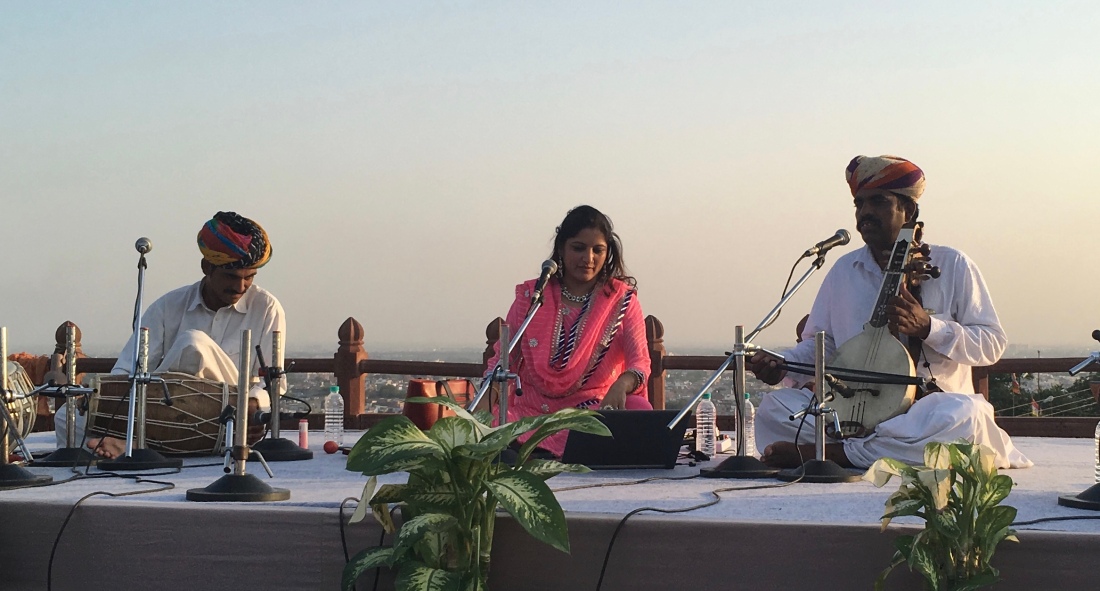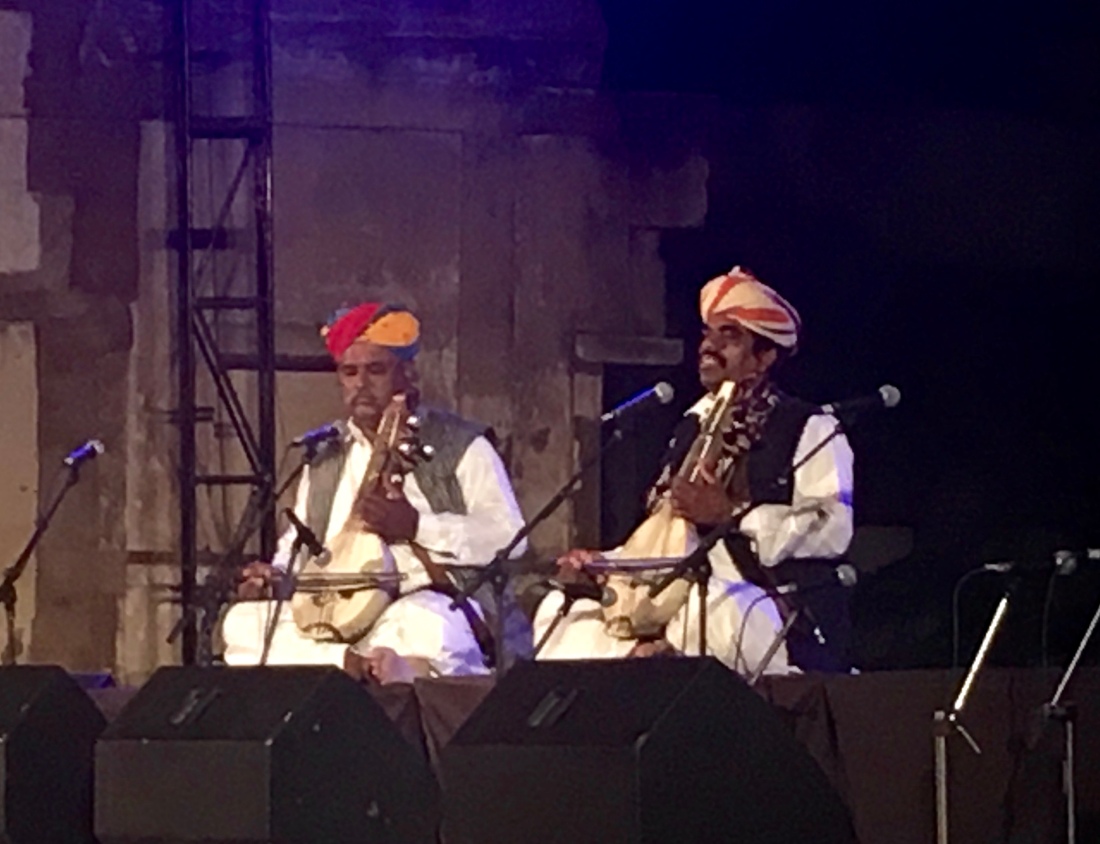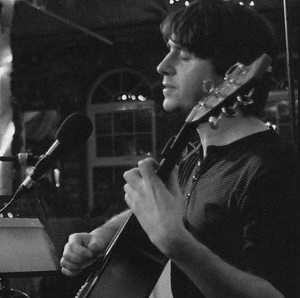This is a guest post by Gwilym Morus
Bringing together the music of Wales and India was always going to be a challenge, but as at it turns out, not in the way I expected. Before beginning on this project, I assumed the main issue would be getting to grips with each other’s distinct time signatures, modes and keys. But that wasn’t it at all; far from it.
To be precise, our project is actually bringing together three types of music: traditional Rajasthani folk music provided by Darra Khan and Sawai Khan, Indian classical music provided by Smita Bellur, and contemporary Welsh folk music provided by yours truly.
The folk music traditions of Rajasthan are built upon the same basic principles as Indian classical music. Both are essentially based on raga, or rag as the Rajasthani musicians call them. I won’t try and describe what a raga is here, only that it provides a sophisticated melodic framework for a musician to improvise within. It’s also in that key feature of improvisation that our greatest challenge lies as a collaborative project.

Our musical collaborations: traditional Rajasthani folk musicians Darra and Sawai Khan, and Indian classical singer, Smita Bellur.
I grew up singing. Some of my earliest memories are of singing traditional folk songs with my mother. Then from primary school all the way through to the sixth form, I sang in several school choirs, even a few good ones. I went on to compose and perform music throughout my adult life. As a result I’ve often improvised music. In fact, as far as I can tell, all song writing begins with improvisation; how could it not?
For all of my years making music, never before have I come across a style of improvisation that has such coherence.
But for all of my years making music, never before have I come across a style of improvisation that has such coherence. That’s really the only word for it, coherence: a way of improvising melodies that make a lot of musical sense. Both Rajasthani folk and Indian classical traditions can give a musician the ability to improvise lines of music that are complete, finished and coherent within themselves, like a well crafted sentence or line of poetry.
This is different to the free flowing, stream of consciousness stuff that we hear so often in modern jazz music. Neither is it the tentative grasping for a half realised melody that I often experience in song writing. At the drop of a hat, Smita, Darra and Sawai can produce long lines of elegant, complete, finished and (I’m going to say it again) coherent melodies.

Kamaicha masters of their generation, Gevar and Darra Khan Manganiyar.
Of course, within these melodies, the particular raga they’re working in provides set notes and motifs that can be returned to over and over, but these sound like punctuation to me, defining beginnings and endings to continually evolving improvisations.
So what is the challenge? The Western musical tradition has largely evolved as a tradition of composers. The music of European cultures, for all its incredible ingenuity and beauty, is composed before performance, not during it. That means that musicians like myself have been schooled since childhood in viewing music as something pre-prepared, fixed, generally not improvised. It’s something we already know before we get up on the stage.
As a result, the biggest challenge I face over the coming months as I try and prepare music for our next collaborative stint, is ensuring that my addiction to that musical certainty, my need to know what comes next, does not impinge on the virtuosic flow of my Indian collaborators.
